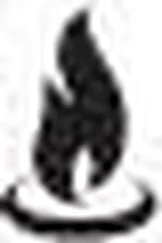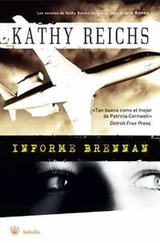Kathy Reichs - Bare Bones
Здесь есть возможность читать онлайн «Kathy Reichs - Bare Bones» весь текст электронной книги совершенно бесплатно (целиком полную версию без сокращений). В некоторых случаях можно слушать аудио, скачать через торрент в формате fb2 и присутствует краткое содержание. Жанр: Старинная литература, на английском языке. Описание произведения, (предисловие) а так же отзывы посетителей доступны на портале библиотеки ЛибКат.
- Название:Bare Bones
- Автор:
- Жанр:
- Год:неизвестен
- ISBN:нет данных
- Рейтинг книги:4 / 5. Голосов: 1
-
Избранное:Добавить в избранное
- Отзывы:
-
Ваша оценка:
- 80
- 1
- 2
- 3
- 4
- 5
Bare Bones: краткое содержание, описание и аннотация
Предлагаем к чтению аннотацию, описание, краткое содержание или предисловие (зависит от того, что написал сам автор книги «Bare Bones»). Если вы не нашли необходимую информацию о книге — напишите в комментариях, мы постараемся отыскать её.
Bare Bones — читать онлайн бесплатно полную книгу (весь текст) целиком
Ниже представлен текст книги, разбитый по страницам. Система сохранения места последней прочитанной страницы, позволяет с удобством читать онлайн бесплатно книгу «Bare Bones», без необходимости каждый раз заново искать на чём Вы остановились. Поставьте закладку, и сможете в любой момент перейти на страницу, на которой закончили чтение.
Интервал:
Закладка:
“That”—she tapped a photo with a pudgy finger—“is a Spix’s.”
The bird had a cobalt blue body and pale head. The legs were dark, the eye gray, the beak black and less hooked than I’d expected.
“How big were they?”
“Fifty-five, sixty centimeters. Not the largest, not the smallest of the macaws.”
“Where did they hang out?” Ryan.
“The arid interior of east-central Brazil. Northern Bahia province, mostly.”
“The species is no more? They are an ex-species?”
I caught Ryan’s Monty Python reference. Rachel did not.
“The last surviving wild Spix’s disappeared in October of 2000,” she said.
“That’s a known fact?” I asked.
She nodded. “That bird’s story is very poignant. Would you like to hear it?”
Ryan was getting that look.
My eyes crimped in warning.
Ryan’s lips pressed together.
“Very much,” I said.
“Recognizing the Spix’s macaw’s perilous status, in 1985 Birdlife International decided to census the species in its only known habitat.”
“In Brazil.”
“Yes. Depressingly, the total count came to five.”
“That’s not good,” I said.
“No. And the situation went downhill from there. By the end of the decade the number of sightings had fallen to zero. In 1990, Tony Juniper, one of the world’s top parrot experts, went to Brazil to determine whether the Spix’s truly was extinct in the wild. After six weeks of scouring Bahia by four-wheel drive, questioning every farmer, schoolboy, padre, and poacher he met, Juniper located a single male living in a cactus on a riverbank near the town of Curaça.”
“Where’s that?” Ryan asked, flipping through the macaws.
“About thirteen hundred miles north of Rio.” With a tight smile, Rachel retrieved and closed her book.
I did some quick math. “The Spix’s lived on by itself for ten years after the initial sighting?”
“That bird became an international cause célèbre. For a decade, teams of scientists and an entire Brazilian village recorded its every move.”
“Poor guy.” Ryan.
“And they didn’t just watch,” Rachel said. “The situation turned into an ornithological soap opera. Believing the Spix’s genes were too precious to waste, conservationists decided the male needed a mate. But macaws bond for life and this little guy already had a spouse, a bright green Illiger’s macaw.”
“Birdie miscegenation.” Ryan.
“Sort of.” Rachel answered Ryan, then gave me a puzzled look. “Though the couple never cohabitated. The Spix’s lived on a facheiro cactus, the Illiger’s in a hollow tree trunk. They’d fly together during the day, then at sundown the male Spix’s would drop the female Illiger’s off at her tree and return to his cactus.”
“Sometimes a man needs a place of his own.” Ryan.
Two vertical lines puckered Rachel’s brow, but she continued.
“In 1995 researchers released a female Spix’s into the male’s territory, hoping the two would bond and reproduce.”
“Uh-oh. The proverbial other woman.”
Rachel ignored that.
“The female Spix’s courted the male, and he responded.”
“Divorce court?”
“The three birds flew together for a month.”
“Ménage à trois.”
“Is he always like this?” Rachel asked me.
“Yes. Then what happened?”
“The Spix’s female disappeared, and the odd couple returned to its previous domestic arrangement.”
Rachel glanced at Ryan to see if he’d appreciated her witticism.
“Was hubby the sloppy one or neat one?” he asked.
Rachel made an odd, giggling sound through her nose. Sni. Sni. Sni.
“What happened to the Spix’s female?” I asked.
“She had a run-in with power lines.”
“Ouch.” Ryan winced.
“Next, researchers tried all kinds of manipulations with the Illiger’s eggs, finally swapping live Illiger hatchlings for the dead hybrid embryos the female was incubating.”
“What happened?”
“The Brady Bunch.” Sni. Sni. Sni.
“The pair turned out to be good parents,” I guessed.
Rachel nodded.
“And here’s the surprising part. Although the chicks were completely Illiger’s genetically, the young developed voices identical to Dad’s.”
“That’s amazing,” I said.
“Researchers were planning to slip captive-bred Spix’s hatchlings into the nest when the big guy disappeared.”
“The lovebirds were still a couple?” Ryan.
“We’re talking about macaws. Lovebirds are Agapornis. ” A little Rachel bird humor.
“So there are still some Spix’s alive in captivity?” I asked.
Rachel sniffed to show her disdain.
“Approximately sixty exist in private collections.”
“Where?”
“On a commercial bird farm in the Philippines, on the estate of a Qatari sheikh, and in a private aviary in northern Switzerland. I think there’s one at the São Paulo zoo, and several at a parrot park in the Canary Islands.”
“The owners are qualified ornithologists?”
“There’s not a biology degree among them.”
“Is that legal?”
“Unfortunately, yes. The birds are considered private property, so the owners can do what they like with them. But the Spix’s macaw has been an Appendix One species under CITES since 1975.”
Random particles of an idea began to form in my head.
“CITES?”
“The Convention on International Trade in Endangered Species. Appendix One species are considered endangered, and commercial trade in wild specimens is permitted only in exceptional circumstances.”
The particles started to coalesce.
“Is there a market for live Spix’s?”
“The Spix’s was already rare in the eighteenth century because it was so highly valued by collectors.” She virtually spat the last word. “Today, a live Spix’s could bring a hundred thousand dollars or more from a well-heeled buyer.”
Like matter, an idea exploded into being.
I couldn’t wait to phone Slidell.
There was no need. My cell rang as I was turning from campus onto University Boulevard. It was Slidell.
“Talked with the Lancaster County sheriff.”
“What did he have?”
“Mostly holes.”
“Meaning?”
Ryan reached out and reduced the volume of his Hawksley Workman and the Wolves CD to background.
“No one knows nothing much.”
That was not what I wanted to hear.
“The bones did go down to your buddy Cagle.”
“You contacted him?”
“Ever try getting an academic on the horn in August?”
“Did you try his home?”
“His home. His office. His lab. Thinking about setting up a séance with his dead granny.”
Slidell spoke to someone else, came back to me.
“Department secretary finally hooked me up with his top-secret, tell- you- and- I’ll- have- to- kill- you cell phone number. Guy sounded like he was wearing fuchsia tights.”
“And?”
“Walter”—Slidell gave the name a three-note trill—“was excavating on some island off Beaufort, South Carolina. Said he’d get hold of his grad student to read him the Lancaster report as soon as he finished digging up some dead Indian.”
“That was nice of him.”
“Yeah. I’m thinking of mailing him some chocolate chips.”
“Did you run the descriptors through NCIC?”
“Not sure about sex, not sure about time of death. No dentals, tattoos, prints, height, weight. I’d get a printout the length of Soldier Field.”
Slidell was right. Based on what we knew, a national database search of missing persons would be pointless. I changed tacks.
“Ryan and I just met with an ornithologist. Your feathers come from a bird that’s been extinct in the wild since 2000.”
Читать дальшеИнтервал:
Закладка:
Похожие книги на «Bare Bones»
Представляем Вашему вниманию похожие книги на «Bare Bones» списком для выбора. Мы отобрали схожую по названию и смыслу литературу в надежде предоставить читателям больше вариантов отыскать новые, интересные, ещё непрочитанные произведения.
Обсуждение, отзывы о книге «Bare Bones» и просто собственные мнения читателей. Оставьте ваши комментарии, напишите, что Вы думаете о произведении, его смысле или главных героях. Укажите что конкретно понравилось, а что нет, и почему Вы так считаете.










